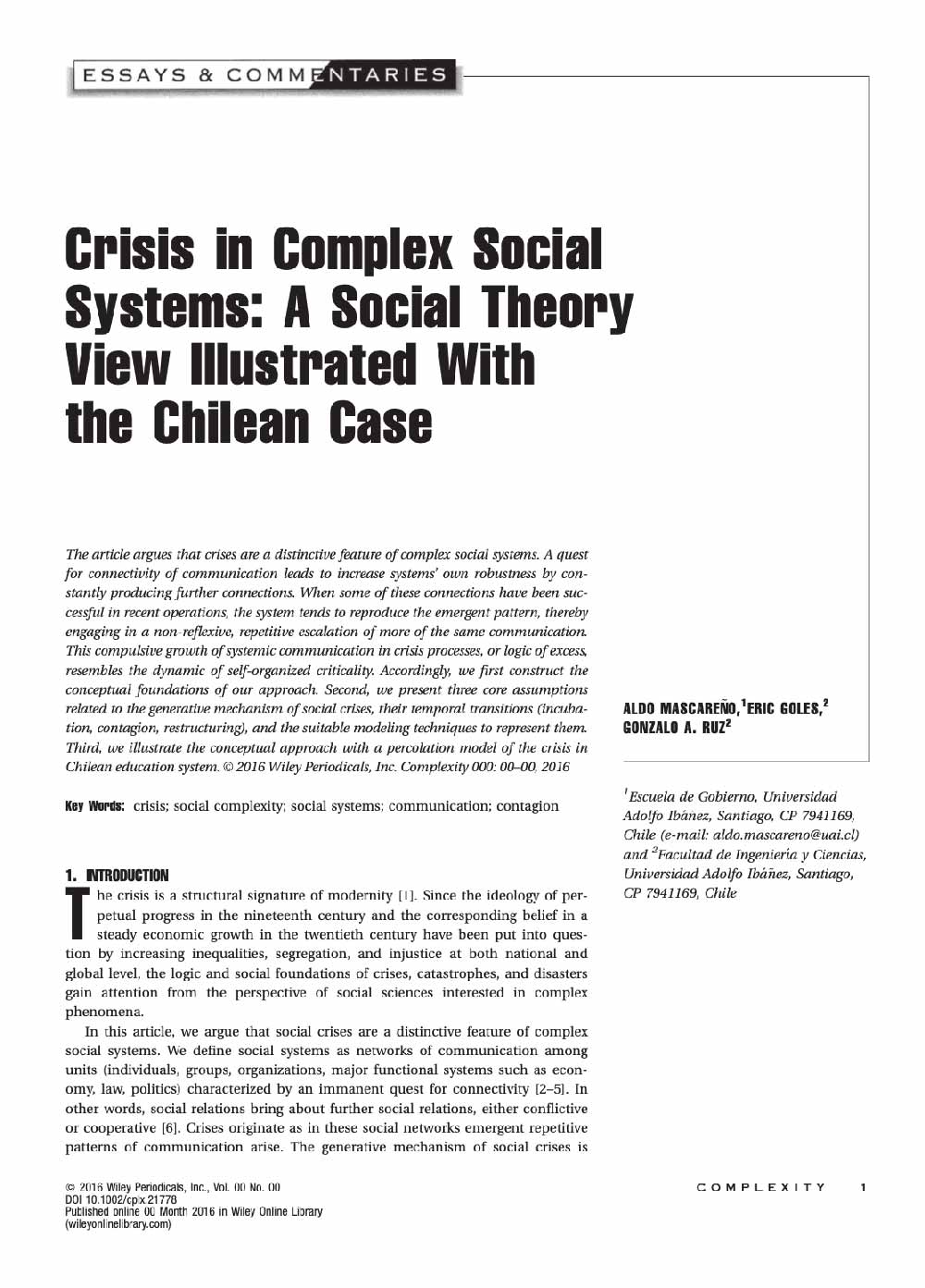Crisis in Complex Social Systems
A Social Theory View Illustrated With the Chilean Case
The article argues that crises are a distinctive feature of complex social systems. A quest for connectivity of communication leads to increase systems’ own robustness by constantly producing further connections. When some of these connections have been successful in recent operations, the system tends to reproduce the emergent pattern, thereby engaging in a non-reflexive, repetitive escalation of more of the same communication. This compulsive growth of systemic communication in crisis processes, or logic of excess, resembles the dynamic of self-organized criticality. Accordingly, we first construct the conceptual foundations of our approach. Second, we present three core assumptions related to the generative mechanism of social crises, their temporal transitions (incubation, contagion, restructuring), and the suitable modeling techniques to represent them. Third, we illustrate the conceptual approach with a percolation model of the crisis in Chilean education system.
Keywords: crisis; social complexity; social systems; communication; contagion












